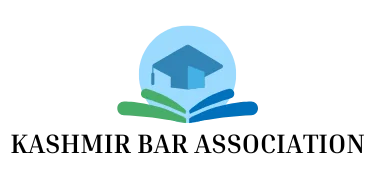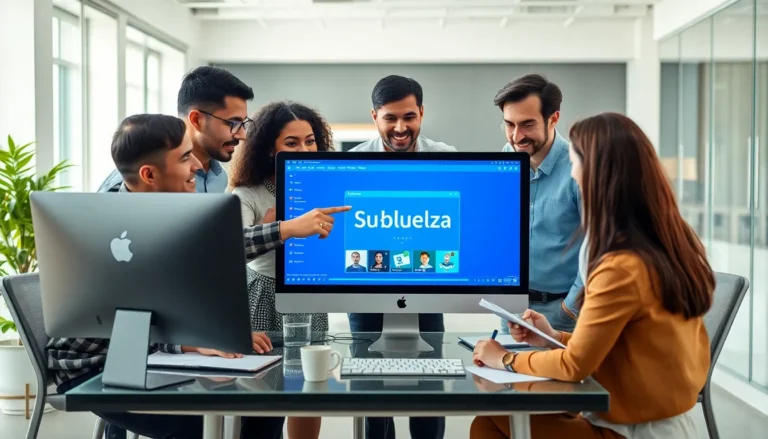In a world where cookie-cutter classrooms reign supreme, it’s time to break free from the mold. Education alternatives are popping up like daisies in spring, offering innovative paths for those who dare to venture off the beaten track. Whether it’s homeschooling, online learning, or experiential education, these options cater to diverse learning styles and interests, proving that one size definitely doesn’t fit all.
Imagine trading in textbooks for hands-on projects or swapping rigid schedules for a more flexible approach. It’s not just about learning; it’s about igniting a passion for discovery. With so many exciting choices available, students can tailor their education to fit their unique needs. So why stick to the traditional route when there’s a whole world of alternatives waiting to be explored? Let’s dive into the vibrant landscape of education alternatives and see how they can transform learning into an adventure.
Table of Contents
ToggleUnderstanding Education Alternatives
Education alternatives refer to various non-traditional methods of learning that challenge conventional schooling. These options empower students to choose paths that align with their unique needs and preferences.
Definition of Education Alternatives
Education alternatives encompass methods such as homeschooling, online learning, and experiential programs. Homeschooling allows parents to tailor curricula, fostering personalized education. Online learning provides flexibility, enabling students to learn at their own pace. Experiential education emphasizes hands-on projects that engage students in real-world scenarios. Together, these alternatives create diverse opportunities for various learning styles and foster independence.
Importance of Exploring Options
Exploring education alternatives offers numerous advantages. First, students gain control over their education, fostering motivation. They can choose subjects that align with their interests, enhancing engagement. Flexibility in scheduling enables learning to occur anytime and anywhere, making education more accessible. Additionally, non-traditional education can promote critical thinking and problem-solving skills. As education evolves, these options play a vital role in preparing students for a rapidly changing world.
Types of Education Alternatives
Education alternatives provide various options that cater to individual learning needs. These methods often diverge from traditional classroom models and emphasize personalized learning experiences.
Homeschooling
Homeschooling offers a customized education plan tailored to each student’s interests and strengths. Families select curricula that align with their child’s learning style, fostering a deep engagement with subjects. Flexibility in scheduling allows students to learn at their own pace, promoting a stronger understanding of material. Many resources are available for families, including online courses and local co-ops, enhancing the learning experience. Studies indicate that homeschooled students often excel academically and develop strong critical thinking skills.
Unschooling
Unschooling embraces a child-led approach to education, where learning occurs through exploration and life experiences. This method encourages curiosity and creativity by allowing students to pursue their interests without a predetermined curriculum. Learners engage with real-world scenarios and projects, which cultivates practical knowledge and skills. Support from parents acts as a facilitator rather than a traditional instructor, promoting independence. Research shows that unschooling can lead to passionate, self-motivated learners who thrive in diverse environments.
Online Learning Platforms
Online learning platforms create opportunities for individualized study across various subjects. These platforms often provide courses from accredited organizations and experienced instructors, making quality education accessible. Students utilize engaging multimedia resources, including videos and interactive quizzes, to enhance their learning experience. Scheduling flexibility allows learners to balance educational commitments with personal interests. Analytics from student performance offer insights into progress, helping tailor further learning strategies.
Montessori Schools
Montessori schools highlight an experiential learning environment that prioritizes student choice and autonomy. Classrooms contain diverse materials that cater to different learning styles, encouraging exploration and hands-on engagement. Teachers serve as guides, fostering a self-directed learning process while respecting children’s interests. Social interaction is an integral part of the curriculum, helping students develop collaboration and communication skills. Research has shown that this approach promotes intrinsic motivation and a lifelong love of learning.
Benefits of Education Alternatives
Education alternatives offer several key advantages over traditional learning methods. These options empower students to pursue tailored educational journeys that align with their individual strengths and interests.
Personalized Learning Experience
Homeschooling provides a customized curriculum, allowing learners to explore subjects they are passionate about. Students engage deeply in projects that resonate with their unique learning styles. Online platforms further enhance this experience through personalized learning paths. Both approaches support mastery at an individualized pace, which fosters retention and understanding.
Flexibility and Freedom
Learning outside the traditional classroom offers unparalleled flexibility. Students set their own schedules, catering to family dynamics and personal commitments. This freedom can lead to a more balanced life, as learners pursue interests outside academics. Online courses or homeschooling grants the ability to travel and learn in diverse environments. In this way, education becomes a part of everyday life rather than a confined experience.
Fostering Creativity and Critical Thinking
Education alternatives nurture creativity through experiential learning. Students explore real-world problems and develop innovative solutions, enhancing their critical thinking abilities. Unschooling emphasizes exploration and self-directed projects, allowing young minds to think outside the box. Moreover, Montessori environments encourage collaboration and peer learning, reinforcing creative skills essential for future success. These methods collectively cultivate independent thinkers prepared for a dynamic workforce.
Challenges of Education Alternatives
Education alternatives present unique challenges that can impact their effectiveness.
Socialization Concerns
Social interaction remains a significant concern for students in education alternatives. Parents often worry that homeschooling or online learning limits opportunities for peer interaction. Experiences outside traditional classroom environments can lead to isolation, making it essential to seek community involvement. Group activities and local co-ops can enhance social skills. It’s crucial for families to proactively create social opportunities, ensuring students develop relationships with their peers.
Curriculum Integrity
Curriculum integrity poses another challenge in alternative education settings. Standards across homeschooling, online platforms, and other formats can vary widely. Some parents may design curricula that lack comprehensive educational frameworks. The risk of missing essential knowledge areas exists without proper oversight. Evaluating educational resources becomes vital for maintaining high academic standards. Parents and educators must ensure chosen programs align with recognized benchmarks, fostering well-rounded education.
Regulatory Hurdles
Regulatory hurdles often complicate the adoption of education alternatives. Laws governing homeschooling and online education differ significantly between states, leading to confusion. Families may face increased documentation requirements or oversight measures. Navigating these regulations can prove time-consuming. Understanding legal obligations ahead of pursuing an alternative pathway is critical. Informed decisions can help parents avoid potential pitfalls while ensuring compliance with educational guidelines.
Exploring education alternatives opens up a world of possibilities for students seeking tailored learning experiences. These non-traditional methods not only cater to individual interests but also promote a deeper engagement with knowledge. By embracing options like homeschooling, online learning, and experiential education, students can unlock their potential and develop critical skills essential for the future.
While challenges exist, the benefits of personalized learning far outweigh the obstacles. With careful planning and community support, families can navigate the complexities of alternative education. Ultimately, these innovative approaches to learning can transform education into a dynamic journey that fosters curiosity and creativity, preparing students for success in an ever-evolving landscape.


